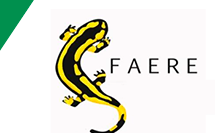This article aims at explaining participation in forestry incentive schemes in order to understand the low rates observed and to provide recommendations for correcting and designing public policies. To do this, we used a unique dataset of more than 1,500 Irish farmers surveyed in 2012 about their motives for afforestation in the context of premium schemes supporting tree planting on agricultural lands. Together with economic information about farm incomes, value of forestry output and forestry premium, this data makes it possible to reconcile social and economic analyses to understand the behaviour is adopted. We thus estimated the afforestation (past and future_ decisions and tested the effect of economic incentives and other motives such as social and intrinsic motives (e.g., patrimonial attachment, pro-environmental behaviour). Using a full information econometric model of past and planned participation, we showed that the low attention paid to economic motives by farmers explains the low participation. Specifically, public policy oriented towards pro-environmental behaviour and land attachment would be more efficient. We find significant crowding-out effects.
|
When economic perspectives are not sufficient, can incentives for pro-environmental behaviour help? Empirical evidence from afforestation schemes in Ireland
1 : Bureau d'Économie Théorique et Appliquée
(INRA-BETA)
-
Site web
Institut National de la Recherche Agronomique : UMR1448, université de Strasbourg, Université de Lorraine, Centre National de la Recherche Scientifique
AgroParisTech 14 rue Girardet 54000 Nancy -
France
2 : University College Dublin
(UCD Forestry)
University College Dublin Belfield Dublin 4 -
Irlande
|




